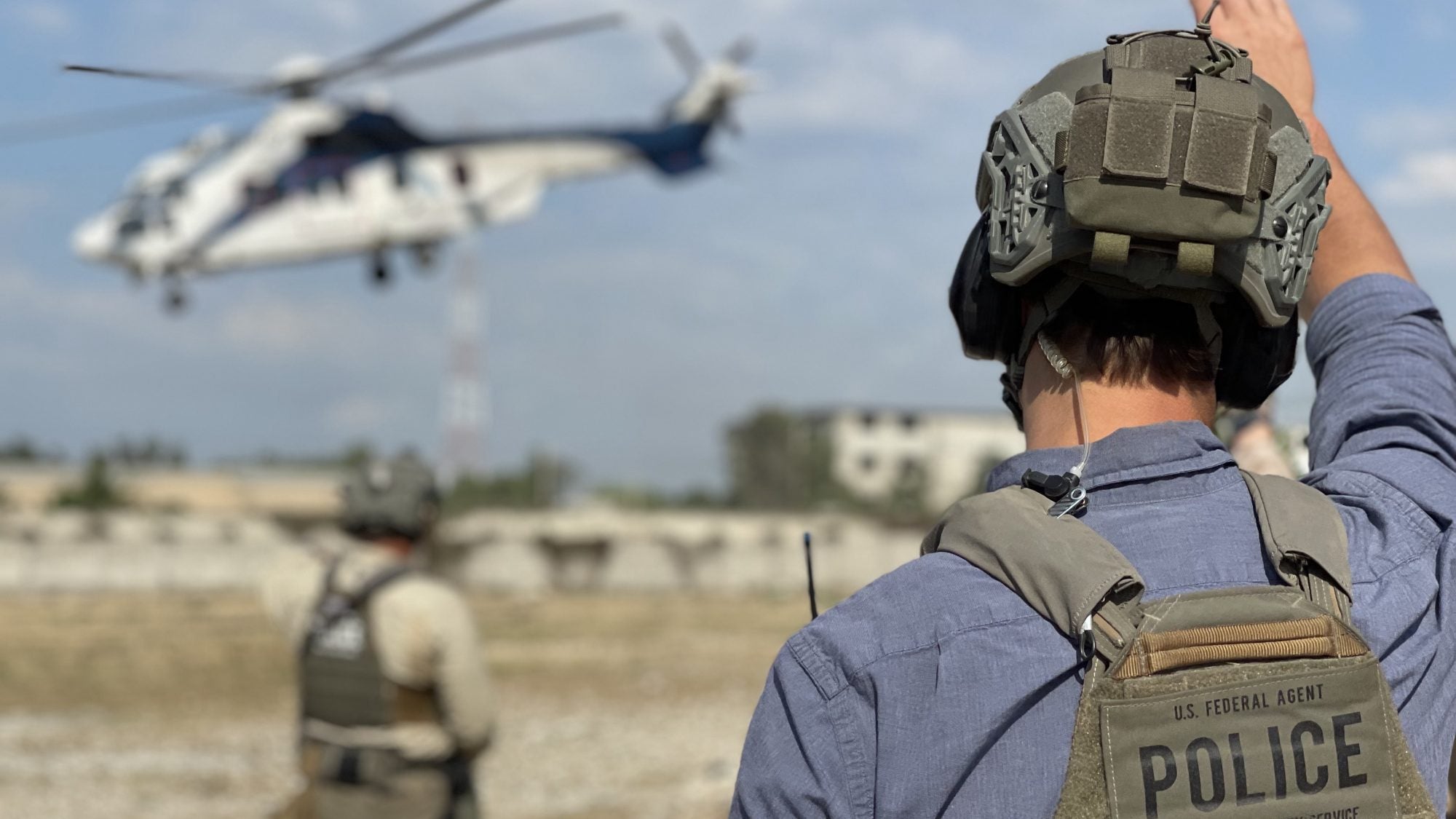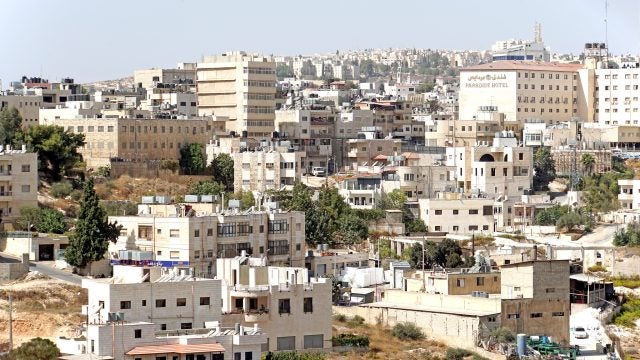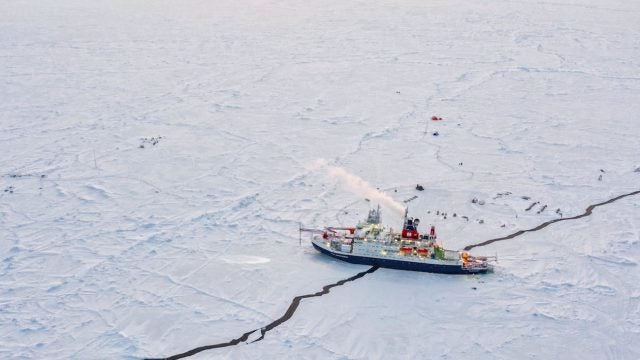
Title: How the Trump Administration Can Make the United States and Haiti Safe Again
Since 2021, Haiti has lacked a functioning government. Gang violence has fueled migration to the United States and turned the country into a drug transshipment hub. If President Trump seeks to “Make Americans Safe Again,” he should address the root causes of Haiti’s crisis by building on first-term policies to curb gangs and restore governance. This necessitates investment in Haitian policing capacity, support for civil society organizations, and collaboration with regional partners.
The Haiti Challenge
Since the assassination of President Jovenel Moïse in 2021, the Haitian state has largely collapsed. Today, an unelected, US-backed Transitional Presidential Council nominally leads the country. Tasked with preparing Haiti for its first free election since 2016, the nine-member Council has been paralyzed by infighting and corruption. Today, over 200 gangs operate nationwide, concentrated largely in the Ouest department, with an estimated 20 active gangs in the capital of Port-au-Prince. The gangs—some with links to political and economic elites and the Haitian National Police (HNP)—perpetrate massacres against civilians, employ sexual violence against women, and collect rents in the neighborhoods they control. These rents fund weapons and ammunition while bolstering gangs’ efforts to recruit young people into their ranks and expand their territorial holdings. The resulting political and social turmoil has led to drug smuggling along channels of mass migration both from and within Haiti.
Meanwhile, the Trump administration has sought to secure the US southern border and stem the flow of illegal migrants to protect the United States from organized crime. Immediately upon taking office, President Trump laid out his “America First” priorities, foregrounding the slogan “Make Americans Safe Again” (MASA). But securing US borders cannot be achieved simply by building higher walls and expelling migrants—measures Trump views as essential to effectuating MASA. In 2022, Trump’s “virtually impenetrable” border wall was breached an average of 11 times a day, while deporting migrants requires a legal process to ensure those being expelled are criminals. Instead, the Trump administration needs a proactive strategy for rooting out the gangs, financiers, and other drivers of drugs and people into the United States.
Haiti’s ongoing crisis and the Trump administration’s focus on border security present a confluence of interests. Given the often-destabilizing role the United States has played in Haiti’s history—from successive flawed occupations to aid mismanagement—US policy today must account for that legacy while avoiding the mistakes of the past. And for the Trump administration, stabilizing Haiti is not only a matter of responsibility, but a matter of regional security. If President Trump seeks to “Make Americans Safe Again,” his efforts should include stabilizing Haiti using policies developed during his first term that call for interagency collaboration to strengthen local governance capacities.
History of US-Haiti Relations
Haiti’s current instability is partly rooted in its two hundred years of engagement with the United States, which helped entrench the systems of corruption and norms of state-sanctioned violence that drive waves of emigration today. Following its independence from France in 1804, Haiti was forced to pay a crippling “independence debt” to France in 1825 and was diplomatically isolated by the United States. Haiti’s economic deprivation and isolation prompted the 1915–1934 US occupation of Haiti, giving rise to two decades of political turmoil during which peaceful transfers of power were consistently derailed by coups and military juntas. The US occupation left behind a militarized political culture and centralized authority that set the stage for future strongmen like François “Papa Doc” Duvalier, who rose to power in 1957. Papa Doc used US-led support to secure his authority through a brutal system of repression that relied on a state-sanctioned militia, the Tonton Macoute.
Created as a counterweight to the coup-prone Haitian army, the Tonton Macoute acted as secret police, preying on citizens and suppressing dissent. Members of the Tonton Macoute were largely recruited from the impoverished countryside, often attracting those disillusioned with the traditional Haitian elite. Unpaid by the Duvalier family, they resorted to confiscating land as payment and made their living through extortion and crime. Duvalier’s family-supported predation on Haiti continued until a coup ousted Papa Doc’s son and successor, Jean-Claude “Baby Doc” Duvalier, in 1987.
The Tonton Macoute reshaped Haitian politics. After Baby Doc’s fall, surviving members transitioned into mercenary gangs hired by elites—including businessmen and politicians. The power vacuum created by the absence of a functional Haitian military and police force led elites to enlist gangs for private security, access to critical infrastructure, and political influence, all while preserving public legitimacy and avoiding direct accountability. Over time, these gangs took up drug trafficking, arms sales, kidnapping, and racketeering. Since 1991, gangs have influenced nearly every political transition and now act as de-facto authorities in areas they control. For decades, Haiti’s elites continued to fund and arm gangs, embedding them into the political system. Today, gangs are the most potent political and military actors in Haiti, while the legitimacy and capacity of the Haitian state continue to erode.
United States-Haiti Relations Today
In 2022, then-Prime Minister Ariel Henry called on international partners to help beat back gang violence and limit ongoing social dislocations. In response, the Biden administration announced $100 million in Department of Defense funds for military aid and paid into a United Nations Trust Fund, pledging a total of some $380 million for the new United Nations Multinational Security Mission (MSS) to Haiti.
The MSS was designed to be a 2,500 member Kenyan-led police deployment supporting the HNP fight against gangs. Its operational concept involved the MSS and the Haitian police entering communities captured by gangs, pushing gangs out, and holding these areas for reconstruction. However, as of the first quarter of 2025, the MSS had only deployed 1,000 officers to Haiti, and lacked funding—in part because of the Trump administration’s decision to end a significant proportion of US foreign aid. This lack of adequate funding has reportedly left MSS equipment in a state of disrepair. Its armored vehicles are poorly suited to urban Port-au-Prince streets, and, in addition to a shortage of ammunition, it lacks helicopters and boats to deal with gang operation at sea. Poor working conditions also led to at least 20 Kenyan police resigning from the mission.
For their part, Haiti’s National Police has failed to demonstrate the will and capacity to work with the MSS. Police will to fight is dictated in part by being paid, but salaries have often gone unpaid for months. Unsurprisingly, the police force has shed over 3,000 members since 2021. As a result, out of a national force size of 15,498, fewer than 9,000 police are on duty on a given day (about one police officer per 1,000 residents). Moreover, poor wages incentivize officers to accept bribes, facilitating corruption. Not only has weak institutional integrity caused the HNP to accommodate criminal activities, but police officers themselves often have links to gangs. The G-9 gang is led by former police officer Jimmy Cherizier, better known as Barbeque; Vitel’homme Innocent, the leader of the “Kraze Baryè” gang, is alleged to have connections to Haitian officials and politicians. The police that remain willing to work lack necessary arms and infrastructure. Just like the MSS, the HNP struggle with a lack of armored vehicles and spare parts, as well as limited supplies of arms and ammunition. Moreover, about one in five police stations in Haiti was not operational in 2024.
After three years of escalating gang violence in the face of an insufficient police response, over one million Haitians have been forcibly displaced inside their country. Since 2021, there have been nearly half a million border encounters with Haitians attempting to cross into the United States, including approximately 300,000 Haitians granted temporary residence inside the United States as part of the Biden administration’s Parole in Place program. The joint efforts of the HNP and MSS have been unable to mitigate the instability responsible for these trends.
Haiti’s Coast Guard (CG) and its drug enforcement agency (BLTS) provided little succor to the police. BLTS only has 151 officers (many have been reassigned to anti-gang operations), and the CG has a small fleet of largely inoperable vessels, undermining these agencies’ ability to guard the country’s porous borders. As a result the United Nations Office on Drugs and Crime assessed that Haiti is major transshipment point for cocaine, cannabis, and heroin (fentanyl and amphetamines to a lesser extent) destined for the US. Between 2020 and 2023, 9,676kg of cannabis herb and 211kg of cocaine were seized. In the first nine months of 2024, BLTS reported sizing 365kg of marijuana and 16kg of cocaine. But these data are likely significant undercounts given staffing limitations and Haiti’s 1,100 miles of coastline.
The Trump Team’s Task
If the Trump administration is intent on Making America Safe Again, it must address the security and governance issues driving people out of Haiti and into the United States. This requires a durable US commitment to rebuilding Haitian policing capacity and supporting the MSS. It requires supporting Haitian communities and civil society groups that can set up alternative governance systems that keep gangs from coming back once they are cleared out of neighborhoods. And it means working with regional partners to create economic opportunities for young people in Haiti.
In its first term, the Trump administration published the 2018 Stabilization Assistance Review, an interagency guidance document for stabilizing countries affected by violence and conflict. The Review argued that stabilizing a country is a political endeavor, requiring coordination among defense, state, intelligence, and foreign aid agencies. The key to stabilizing a conflict-affected country is manufacturing the conditions under which legitimate local authorities can manage a conflict peacefully and prevent new outbreaks of violence. This guidance led to the 2019 Global Fragility Act, a law written to improve US efforts to prevent conflicts and promote stability. The Act buttressed US strategic objectives common to both the Trump and Biden administrations about managing the challenge of illegal migration in the western hemisphere. Secretary of State Marco Rubio was a key cosponsor of the Bipartisan Act, which is up for reauthorization. The Trump administration simply needs to follow the systems it developed to stabilize Haiti and achieve its goal of making the United States safer.
Following its own previous guidance, the Trump administration should deploy a sequential interagency effort to stop the gang violence, empower local political actors who do not collaborate with gangs or employ violence, and begin building durable social and economic opportunities for gang-affected communities.
This process begins with the United States releasing all funding to the MSS and donating additional supplies to the HNP. Money for both forces will help maintain their current force sizes, build forward operating bases, and refurbish abandoned stations. Tactical training combined with the provision of more weapons and armored cars will expand both MSS and HNP capacity to combat gangs head-on. Critically, the United States should track all funds and supply shipments to Haiti. Given the widespread corruption, it is essential that no supplies are diverted by corrupt national officials, and no weapons are used to commit human rights violations.
To ensure gangs do not return, the United States should mandate that police work closely with Haitian civil society organizations operating in gang-controlled areas. As the police beat back a gang, local actors untethered to corrupt national leaders and local gangs must step into the power vacuum. In the short-term, local leaders must develop processes for reconciliation and transitional justice and demobilize anti-gang vigilante groups. Over the medium and long-term, they will need to provide communities humanitarian relief, basic services, and hope for economic prosperity. While the Trump administration no longer sees foreign aid as a priority, humanitarian aid is critical to stem migration from and through Haiti. The United States should work with the Organization of American States, Caribbean Community (CARICOM), and the United Nations to finance a new long-term peacekeeping and development assistance program for Haiti.
Secretary of State Marco Rubio’s meeting with Latin American and Caribbean countries is an indication the Trump administration is aware that solving issues of irregular migration and the trafficking of illicit goods into the United States can only be accomplished through coordinated multi-agency and multilateral diplomatic efforts. All he has to do is convince the president to follow his own policy to achieve the objectives he has set out for his new term in office.
. . .
Christopher Shell, Ph.D. is a fellow in the American Statecraft Program at the Carnegie Endowment for International Peace and an Adjunct Professor at George Washington University. His work examines the intersection of race and US foreign policy, as well as US policy toward the Western Hemisphere.
Zuri Linetsky, Ph.D. has worked in Haiti since 2018, authoring several reports on the economic, political, and security situation on the ground. He is the Founding Executive Director of One Whitehorn Consulting, and the Principal for Research and Analytics at Dandelion Works.
Image Credit: Diplomatic Security Service, Public Domain, via Wikimedia Commons.
Recommended Articles

Critical maritime infrastructures (CMI), and in particular undersea communication cables, are increasingly under threat of attacks by malign actors who benefit from asymmetric capabilities and jurisdictional complexities in the maritime…

This article explores how the Palestinian crisis and the death of the two-state solution endangers the Hashemite Kingdom of Jordan. It illuminates the complicated relationship between Jordan, Israel, and Palestine…

This article explores the uncertain future of Arctic governance amid shifting global geopolitics. It argues that whether Washington and Moscow opt for confrontation or cooperation, multilateralism in the Arctic…